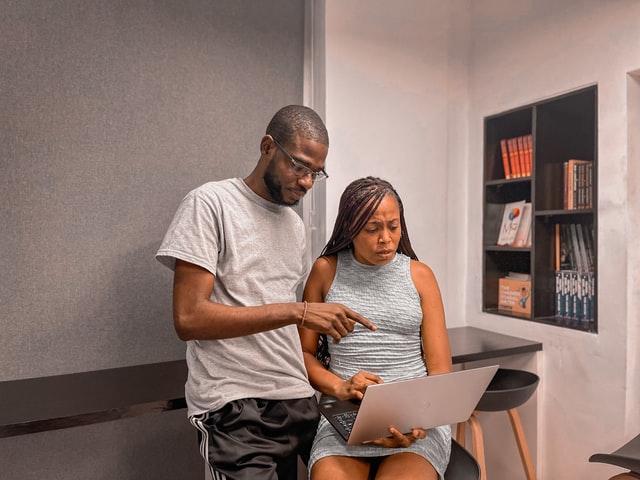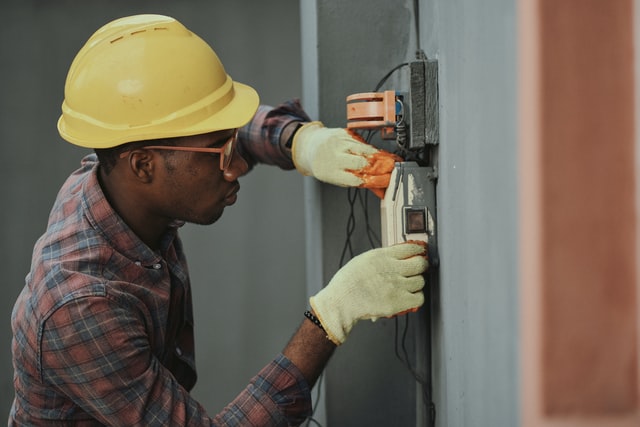The Nigerian Society of Engineers (NSE) is a professional organization that serves as the umbrella body for all engineers in Nigeria.
It provides a platform for engineers to network, share knowledge, and collaborate on projects.
Becoming a member of the NSE is a significant achievement for any engineer, as it indicates their professional competence and offers numerous benefits.
This article will provide a step-by-step guide to becoming a registered Nigerian Society of Engineers member and the financial implications and benefits.
Whether you’re a recent engineering graduate or an experienced engineer looking to enhance your professional profile, this guide will help you navigate the NSE membership process.
Let me know in the comment if you have any questions or need further clarification. I will love to hear from you.
Table of contents
The Nigerian Society of Engineers

The Nigerian Society of Engineers (NSE) is an organization that represents the engineering profession in Nigeria.
Established in 1958, the NSE provides professional development and technological advancements for its members.
The organization is registered with the Corporate Affairs Commission as a company limited by guarantee without a share capital.
The NSE has the vision to become one of the best engineering professional bodies in the world, and its mission is to enhance its members’ professional competence and development.
It is committed to collaborating with various sectors, including the government, industry, commerce, academia, and Society, to uplift the country.
Becoming a member of the NSE requires a series of payments, and candidates must meet specific criteria depending on their experience and education level.
The organization offers different membership levels: graduate, associate, corporate, and fellow.
Members have access to various benefits, including professional development programs, networking opportunities, and advocacy for the engineering profession.
Its dedication to enhancing its members’ professional competence and development and its commitment to uplifting the country makes it an important institution in the Nigerian engineering community.
Classification and Eligibility Requirements

The Nigerian Society of Engineers (NSE) offers five types of memberships:
- Student Member
- Graduate Member
- Corporate Member
- Associate
- Fellow.
The following section details the eligibility requirements for each of these membership classes.
1. Student Members
Student Members are undergraduates in engineering programs at institutions recognized by the Council of the Society.
These individuals can register online and are expected to attend their school’s Student Chapter and nearest Branch.
Student Members can participate in National Conferences and attend Young Engineers Forum of Nigeria (YEFoN) sessions during the Conference. The online registration fee for Student Members is ₦1,100.
2. Graduate Members
Graduate Members are engineering graduates who have not undertaken Corporate Membership or have less than five (4) years of post-graduation engineering experience.
To qualify for this membership class, a person must possess an academic qualification that is acceptable to the Council of the Society and registrable by the Council for the Regulation of Engineering in Nigeria (COREN) under the provisions of the Engineering Registration Decree (No.55) of 1970 or any amendment thereof. HND holders are not eligible for this membership class.
The registration fee for Graduate Members is approximately ₦2,500, and no exam is required.
It allows them to participate in Branch activities and YEFoN during Conferences. Such participation may give them about 5 points during Corporate Membership registration exams.
3. Corporate Members
Corporate Members are the prominent members of the NSE and are mostly referred to as just Members.
To become a Corporate Member, a person must have been registered by COREN and have undertaken the Corporate Membership processes.
Candidates for this Membership are grouped into different categories, which include:
- A1 – Candidates with a Bachelor’s degree in Engineering from institutions whose programs are accredited by COREN and registered by COREN as Professional Engineers.
- A2 – Candidates already Corporate Members of Engineering Institutions recognized by COREN.
- B1 – Candidates with a Bachelor’s degree in Engineering from institutions whose qualifications are accredited by COREN or any overseas accreditation board recognized by COREN. Such candidates must have a minimum of 4 years post-qualification experience.
- B2 – Candidates who obtained HND and PGD in the same field of Engineering from approved Institutions and had acquired a minimum of 6 years post-graduation experience in the practice of Engineering.
- B3 – Candidates who obtained an HND in Engineering from an approved institution and have completed the NSE Graduateship Examinations, and have had an additional 2 years of engineering practice.
- C1 – Candidates who are 40 years and above, have the correct and adequate basic academic qualifications by COREN Standards and Regulations, and have a minimum of 10 years post-qualification experience. The candidates must appear in person.
- C2 – Candidates who are top executives in Government parastatals or industries, are 45 years and above, have the correct and adequate basic academic qualifications by COREN Standards and Regulations, and have a minimum of 15 years post-qualification experience. They may be accorded a Presidential interview through the NSE branch.
4. Fellows
The Nigerian Society of Engineers (NSE) fellows are corporate members who have fulfilled specific requirements to attain this status.
These requirements include the following;
- Being a corporate member of the NSE for at least ten (10) years
- Have additional academic qualifications for HND holders
- Present four technical or management papers in the last ten (10) years
- Work on outstanding projects
- Attend refresher engineering courses or workshops
- Be active in branch and division activities
- Consistent paying NSE dues for the last five (5) years.
Referees for the fellowship must also be financial members of the Society, and aspiring fellows must have attended at least 5 AGMs in the last ten years.
There are two fellowship categories: by invitation and application, with processing fees of ₦2.2m and ₦300,000, respectively. Fellows can attach “FNSE” to their names.
More details about the requirements can be found on the NSE website.
5. Associate
Associate Membership is a class of Membership in the Nigerian Society of Engineers (NSE) for individuals who possess an academic qualification at the level of a university degree in the sciences allied to engineering science or qualifications approved by the NSE Council.
Additionally, an individual seeking election as an Associate of the Society should have been engaged in work related to engineering for a minimum period of five (5) years.
Associate members did not necessarily study engineering but have relevant science qualifications and have contributed effectively to the engineering profession in practice for at least five (5) years.
Associate members are entitled to participate in the activities of the Society, attend its meetings, and receive its publications.
How to Become a Member of the Nigerian Society of Engineers

Here is a step-by-step process on how to become a registered member of the Nigerian Society of Engineers:
- Determine which category you qualify for based on your education and experience: A1, A2, B1, B2, C1, or C2.
- Register online and pay the required fees if you qualify for Category A1 or A2.
- If you qualify for Category B1 or B2, download and complete the Acknowledgment and Statement of Experience Form. Have a COREN Registered Engineer endorse your Statement of Experience Form.
- Upload the completed Acknowledgement Form, Statement of Experience Form, and other required credentials online.
- If you qualify for Category C1, follow the same process as B1/B2, including proof of at least 10 years of engineering experience and proof of being up to 40.
- If you qualify for Category C2, liaise with your Branch for necessary documentation and scheduling of the Presidential Interview.
- Ensure that the NSE Membership Registration Numbers of 2 Proposers are entered on your application and that they are financially up-to-date.
- Wait for NSE to verify your credentials and process your application.
- If approved, pay the required fees and receive your NSE Corporate Membership certificate, which qualifies you to apply to COREN.
Financial Implications

Becoming a Nigerian Society of Engineers (NSE) member involves a series of payments.
It is essential to ask the right questions and not assume that the initial online registration fee of ₦20,000 is all that is required.
The financial implications differ depending on the category of Membership you are applying for.
For B1/B2 Candidates, several payments may be required, including the online application fee of ₦20,000 paid to NSE HQ, formal registration with the NSE Branch nearest to you, formal registration with your Division, and attending a preparatory seminar.
The cost of the preparatory seminar may vary between ₦10,000 to ₦20,000 depending on the Branch/Division or location.
After successfully passing the Interview and examinations, an election fee of ₦56,300 (or ₦61,300 for those whose graduation is up to ten (10) years) is payable online.
Candidates must also pay an induction fee, which varies between ₦20,000 and ₦30,000, depending on the Branch. Finally, an annual subscription fee of ₦9,000 must be paid to remain up-to-date.
For C1 candidates, the payments required are higher than those of B1/B2 candidates.
This includes an online application fee of ₦70,000, formal registration with the nearest NSE branch, formal registration with your Division, and attending the Continuing Professional Education for Executive Engineers (CoPEEE) seminar organized by NSE HQ.
The CoPEEE seminar is mandatory and attracts a fee of ₦50,000. After passing the Interview and tests, you must pay an election fee of N61,300 online.
C1 candidates may also have to pay an induction fee if it wasn’t already paid when registering with their Branch. Finally, an annual subscription fee of ₦9,000 must be paid to remain up-to-date.
It is important to note that these fees may vary depending on the branch/division or location, and confirming the exact amount with your branch/division is advisable.
Benefits of Being a Member of the Nigerian Society of Engineers

Becoming a Nigerian Society of Engineers (NSE) member has many professional and personal benefits.
Here are some of the importance of becoming a member of NSE:
- Professional Recognition: NSE membership recognizes one’s professional competency and skill. It affirms that the individual has met specific professional standards and is qualified to practice engineering in Nigeria.
- Networking Opportunities: NSE membership provides access to a network of engineers and other professionals in related fields. This allows for the exchange of ideas and information, which can lead to collaborations and new opportunities.
- Career Development: Being a member of NSE can enhance one’s career development by providing access to professional development opportunities such as conferences, seminars, and workshops.
- Advocacy and Representation: NSE represents the interests of engineers in Nigeria and advocates for policies that promote the profession. As a member, one can participate in the organization’s advocacy efforts and have a voice in shaping the profession.
- Access to Resources: NSE provides members access to various resources such as technical publications, research materials, and industry reports. This can help members stay up-to-date with the latest developments in the field.
- Social Responsibility: NSE members must abide by a code of ethics emphasizing professional responsibility and social awareness. As a member, one is expected to contribute to Society by engaging in projects that promote sustainable development and social welfare.
Conclusion
In conclusion, becoming a Nigerian Society of Engineers (NSE) member is not just about having a professional title.
Still, it also opens up opportunities for networking, professional development, and positively impacting Society through engineering.
Becoming a member may seem daunting, but anyone can successfully navigate the process with determination, dedication, and attention to detail.
The financial implications may be significant, but the long-term benefits outweigh the costs.
So, if you aspire to become a registered engineer in Nigeria, take the first step today by applying for Membership with the Nigerian Society of Engineers. It is a decision that you will not regret.
Let me know if you have any questions or need further clarification. I would love to assist you.
You can watch my videos on the Studentship YouTube Channel by clicking here.
Join my Facebook Group, Like my Facebook Page or Follow Me on WhatsApp for more interactive discussions.

Please I registered for NSE as a graduate member over a month via the portal and till now I haven’t received my certificate.I have sent them an email already, no reply, and no result.
Please any info to help me get my certificate and how to go about it
I understand your frustration. It is not uncommon for it to take a few weeks to receive your NSE certificate after you have registered. However, if it has been over a month and you have not received your certificate, I would recommend following up with the NSE.
Here are the steps you can take to follow up on your NSE certificate:
1. Check your email spam folder. Sometimes emails from the NSE can end up in the spam folder.
2. Contact the NSE by phone. The NSE contact number is 0817-346-0994.
3. Send another email to the NSE. This time, be sure to include your NSE registration number and the date you registered.
4. Visit the NSE office in person. The NSE headquarters is located at National Engineering Centre, Labour House Road, Central Business District, Abuja, FCT.